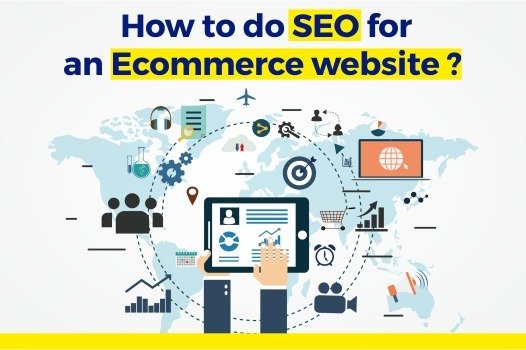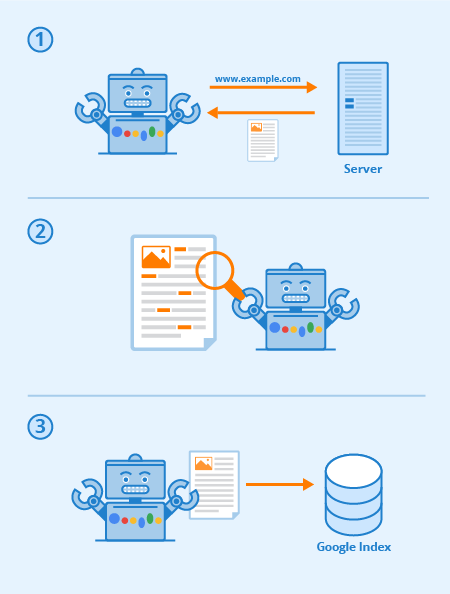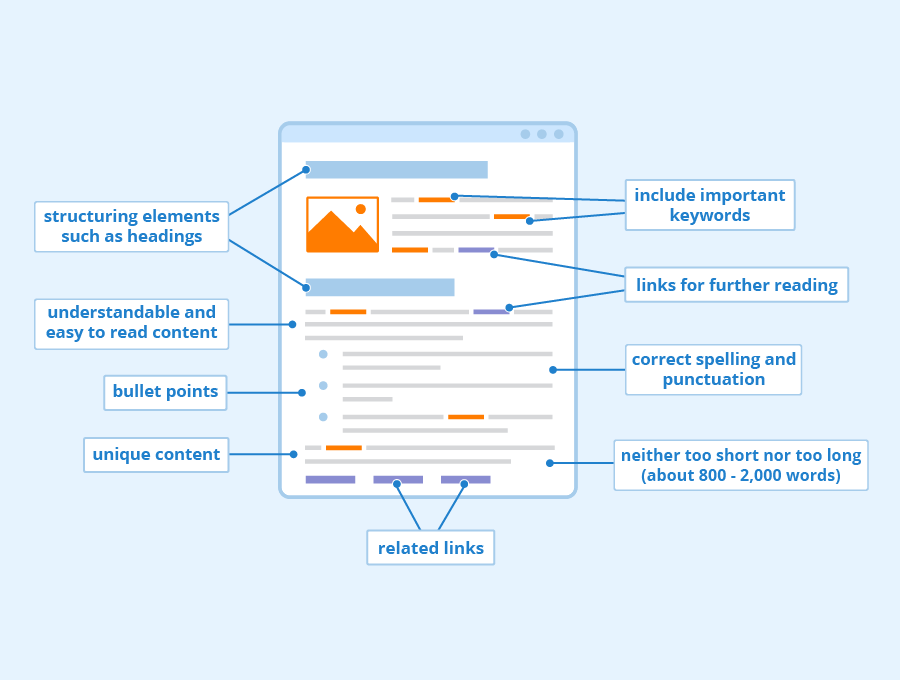
According to the Indian Brand Equity Foundation (IBEF), the Indian ecommerce industry is scheduled to grow into the second-largest market in the world by 2034, surpassing the United States. There are millions of ecommerce websites active in the country and consumers are slowly getting used to shopping online for all their basic and luxury needs.
Ecommerce business owners have a lot of potential for growth in today’s scenario. However, you need to have the right approach for this. If you are in a place where you only get considerable website traffic when you opt for paid marketing, you have to seriously rethink your online business strategy.
What is Ecommerce SEO?
Ecommerce Search Engine Optimization (SEO) is the process of increasing traffic to your website organically from search engines by improving the quality of your website and content.
Let’s say you want to buy indoor plants in Bangalore. You enter a search engine like Google or Bing and search using the keywords ‘indoor plants in Bangalore’. You see the below results.
The websites that are listed on the first page of the search engine are the top-ranked ones. They get better traffic and more clicks every day. This will be your aim – to list on the top of the Search Engine Results Page (SERP) without having to pay for the same.

Ecommerce SEO helps you get high-quality traffic by listing you on the top of search engine results. Sounds simple, doesn’t it? The process is not as simple though!
SEO trends and strategies keep changing every day. Different search engines have their algorithms by which they decide the rankings of eCommerce websites. These algorithms keep changing too. You will have to invest time, effort, and money in creating a long-term SEO technique to outrun your competitors and reach the right audience.
Ecommerce experts are those who keep following the latest trends in the SEO industry and help businesses be found by the right customers.
Why Is SEO Important for Ecommerce?
It does not matter whether you own a website for a small home business or manage the websites of eCommerce giants like Amazon or Flipkart. SEO should be your priority while building your website and even after that.
- SEO helps the right customers find you at the right time
- SEO is the long-term strategy for eCommerce brands to survive and make money
- SEO strategies are smart investments to improve brand awareness
- SEO enhances the user experience
- SEO keeps driving newer low-cost traffic to your site
5 Ecommerce SEO Strategies
1. Keyword Research
One of the most practical, beneficial, and challenging eCommerce SEO strategies of all time is keyword research. Keywords are those words people use to search for a particular product or a service on search engines like Google. Every page on your website needs to be optimized to include three kinds of keywords.
- Informational keywords – Keywords that people use to look for information or details online. Common words used are what, why, and how. (‘What is the best mattress for back pain’)
- Commercial keywords – These are keywords used when people are testing the waters and trying to decide whether or not to buy something online. Users use keywords like affordable, best, cheap, and so on here. (‘The best back pain mattresses under ₹10,000 or ‘The most affordable mattresses in Delhi’)
- Transactional keywords – These keywords are used when the user is ready to buy and has already made a decision. The common terms used here are – buy, discounts, deals, and so on. (‘Where to buy memory foam mattresses in Bangalore?’)

You can use different keyword research tools to identify the top keywords to use. SEO experts will integrate all three kinds of keywords into the eCommerce website to make sure the site attracts visitors, leads, and serious buyers.
It is beneficial to integrate some long-tail keywords into the website’s content too. Long-tail keywords are longer keyword phrases that are very specific. These keywords may not have a lot of search volume but those who search with these keyword phrases are serious buyers with a keen interest in your offering.
Here is an example for you to understand. Let’s say you have a used Ford EcoSport car to sell.
‘used Ford Ecosport’ or ‘second-hand EcoSport’ are regular keywords with high search volume.
‘Buy red-colored used EcoSport car in Bangalore’ is a long term keyword that may not have great search volumes but is very specific to what someone might want.
If a person searches for a red-colored used EcoSport car in Bangalore, your website link will pop-up right away on the search engine and this keyword has a higher chance of getting converted into a sale.
2. Site Architecture
Site architecture is the simple way of how you design your website and how users navigate through the different pages. A good website architecture will have the most useful pages accessible first and users will not have to spend a lot of clicks in finding what they want.
Experts talk about having flatter site architecture. It means that you can reach from the top to the deepest pages on the website with lesser numbers of clicks. Design your website so that users can reach any page they want in 4 or lesser clicks.
Here are three factors to keep in mind when you plan your site architecture.
Crawlability factor – Search engines like Google and Bing use crawl bots called GoogleBot and BingBot to browse through your website and look for searchable content. Search engines rank websites that they can crawl through quicker higher on their search pages.

Responsiveness – Websites that are designed to be responsive to different environments and platforms are usually ranked higher
Duplication – When the same content or page of your website is listed in more than one place online, search engines consider this duplication. Your eCommerce SEO efforts will be affected by duplication because of the following reasons.
- Search engines don’t know which content to include and which to omit while listing your website
- Search engines rank websites with multiple duplicate contents lower and this affects your traffic
- Having duplicates dilutes the visibility of your original intended page(s)
3. On-Page SEO
On-page SEO is the practice of optimizing individual pages in your website to make sure the important ones are visible on search engine results easily. Optimizing your pages is one of the most important strategies of eCommerce SEO and needs to be taken seriously. Here are some of the major factors to work on to optimize your web pages.

Content – Content is the king when it comes to SEO. Search engines will prefer your web page when it has the right content in the right format. Your content has to solve the problem or answer the question that a user has. Your content should also be linkable (content that is worthy of being backlinked/shared by other pages).
Title tags, headlines, descriptions, meta descriptions, and URLs – All these factors need to be optimized on all pages of your website. You have to make sure to include keywords in these areas and to format them right to make sure they are clickable. Have unique content in these areas to attract better traffic.
Outbound and inbound links – Outbound and inbound links help people navigate through your website easily and also give them additional information they may need while searching for something on your site. Website pages that have quality inbound and outbound links are preferred by search engines.
4. Technical SEO
You may have optimized your internal pages well and may have great content to share with users. If the technical SEO aspects are not taken care of, your ranking will still suffer.
Technical eCommerce SEO includes the following aspects.
- Using a secure and encrypted website (SSL certification). Websites with SSL certification start with HTTPS:// instead of HTTP://
- Using a faster and better hosting service to ensure your website can handle high traffic
- Creating an XML site map to ensure better crawlability by search engines
- Making the website mobile friendly
- Ensuring the website is flexible enough to work on all platforms (iOS, Android, Windows, and so on)
- Making sure there are no dead links
- Ensuring the web page images, videos, and content are compressed to improve the loading speed
5. Link Building
We have already touched base about inbound and outbound links. Link building happens when another website mentions or adds a link to one or more of your pages. Link building is the hardest part of eCommerce SEO but provides amazing results when it comes to search engine ranking.

Let’s say you own a cosmetic brand. Influencers and fashion bloggers write about your product and provide a link to your website on their pages. Search engines like Google find this an important factor to help rank a page. When a page has a lot of quality backlinks, the page is considered trustworthy and popular. Your search engine rankings automatically improve.
Here are few tips to start building quality links.
- Ask for backlinks from trusted websites
- Provide links to other websites so that they do the same for you
- Add your website details to web directories
- Leave behind worthy comments and posts on web forums and platforms
- Start a blog and link your important pages here
- Write guest posts on other websites
Conclusion
There are so many reasons you should concentrate on eCommerce SEO. A good looking website is easy to browse through and attractive. This will ensure you get repeat visitors. SEO helps get organic traffic regularly to the site. Increased traffic gets converted into better sales on the site.
SEO is not a one-time thing though. Search engines like Google, Yahoo, and Bing keep changing their ranking algorithm. The strategies that worked last week may not work today. It is hence important to keep updating your SEO techniques too.
Running a business will leave you with no time to spare for other activities. Leave SEO to the experts. Schedule a free consultation with our SEO team today and we will tell you how to improve your search engine ranking and get your website busy and running. Keep working on bettering your products/services and we will ensure your business reaches the right places.
